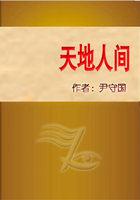He admired in her, too, as he admired in his father, that wealth of creative power and immense capacity for uninterrupted work.
As a proof of this admiration, we have only to turn to the preface to _Le Fils naturel_, in which Dumas is so furious with the inhabitants of Palaiseau. George Sand had taken up her abode at Palaiseau, and Dumas had been trying in vain to discover her address in the district, when he came across one of the natives, who replied as follows: "George Sand? Wait a minute. Isn't it a lady with papers?" "So much for the glory," concludes Dumas, "of those of us with papers." According to him, no woman had ever had more talent or as much genius. "She thinks like Montaigne,"he says, "she dreams like Ossian and she writes like Jean-Jacques.
Leonardo sketches her phrases for her, and Mozart sings them.
Madame de Sevigne kisses her hands, and Madame de Stael kneels down to her as she passes." We can scarcely imagine Madame de Stael in this humble posture, but one of the charms of Dumas was his generous nature, which spared no praise and was lavish in enthusiasm.
At the epoch at which we have now arrived, George Sand had commenced that period of tranquillity and calm in which she was to spend the rest of her life. She had given up politics, for, as we have seen, she was quickly undeceived with regard to them, and cured of her illusions.
When the _coup d'etat_ of December, 1851, took place, George Sand, who had been Ledru-Rollin's collaborator and a friend of Barbes, soon made up her mind what to do. As the daughter of Murat's _aide-de-camp_, she naturally had a certain sympathy with the Bonapartists.
Napoleon III was a socialist, so that it was possible to come to an understanding. When the prince had been a prisoner at Ham, he had sent the novelist his study entitled _L'Extinction du pauperisme_.
George Sand took advantage of her former intercourse with him to beg for his indulgrence in favour of some of her friends.
This time she was in her proper _role_, the _role_ of a woman.
The "tyrant" granted the favours she asked, and George Sand then came to the conclusion that he was a good sort of tyrant. She was accused of treason, but she nevertheless continued to speak of him with gratitude. She remained on good terms with the Imperial family, particularly with Prince Jerome, as she appreciated his intellect.
She used to talk with him on literary and philosophical questions.
She sent him two tapestry ottomans one year, which she had worked for him. Her son Maurice went for a cruise to America on Prince Jerome's yacht, and he was the godfather of George Sand's little grandchildren who were baptized as Protestants.
George Sand deserves special mention for her science in the art of growing old. It is not a science easy to master, and personally this is one of my reasons for admiring her. She understood what a charm there is in that time of life when the voice of the passions is no longer heard, so that we can listen to the voice of things and examine the lesson of life, that time when our reason makes us more indulgent, when the sadness of earthly separations is softened by the thought that we shall soon go ourselves to join those who have left us. We then begin to have a foretaste of the calmness of that Great Sleep which is to console us at the end of all our sufferings and grief. George Sand was fully aware of the change that had taken place within her. She said, several times over, that the age of impersonality had arrived for her. She was delighted at having escaped from herself and at being free from egoism.
From henceforth she could give herself up to the sentiments which, in pedantic and barbarous jargon, are called altruistic sentiments.
By this we mean motherly and grandmotherly affection, devotion to her family, and enthusiasm for all that is beautiful and noble.
She was delighted when she was told of a generous deed, and charmed by a book in which she discovered talent. It seemed to her as though she were in some way joint author of it.
"My heart goes out to all that I see dawning or growing . . ."she wrote, at this time. "When we see or read anything beautiful, does it not seem as though it belongs to us in a way, that it is neither yours nor mine, but that it belongs to all who drink from it and are strengthened by it?"[50]
[50] _Correspondance:_ To Octave Feuillet, February 27, 1859.
This is a noble sentiment, and less rare than is generally believed.
The public little thinks that it is one of the great joys of the writer, when he has reached a certain age, to admire the works of his fellow-writers. George Sand encouraged her young _confreres_, Dumas _fils_, Feuillet and Flaubert, at the beginning of their career, and helped them with her advice.
We have plenty of information about her at this epoch. Her intimate friends, inquisitive people and persons passing through Paris, have described their visits to her over and over again. We have the impressions noted down by the Goncourt brothers in their _Jounal_.
We all know how much to trust to this diary. Whenever the Goncourts give us an idea, an opinion, or a doctrine, it is as well to be wary in accepting it. They were not very intelligent. I do not wish, in saying this, to detract from them, but merely to define them.
On the other hand, what they saw, they saw thoroughly, and they noted the general look, the attitude or gesture with great care.
We give their impressions of George Sand. In March, 1862, they went to call on her. She was then living in Paris, in the Rue Racine.
They give an account of this visit in their diary.
"_March_ 30, 1862.
"On the fourth floor, No. 2, Rue Racine. A little gentleman, very much like every one else, opened the door to us. He smiled, and said: `Messieurs de Goncourt!' and then, opening another door, showed us into a very large room, a kind of studio.















